第41章
Party spirit runs high at Cameta, not merely in connection with local politics, but in relation to affairs of general concern, such as the election of members to the Imperial Parliament, and so forth.This political strife is partly attributable to the circumstance that a native of Cameta, Dr.Angelo Custodio Correia, had been in almost every election, one of the candidates for the representation of the province.I fancied these shrewd but unsophisticated canoe-men saw through the absurdities attending these local contests, and hence their inclination to satirise them; they were, however, evidently partisans of Dr.
Angelo.The brother of Dr.Angelo, Joao Augusto Correia, a distinguished merchant, was an active canvasser.The party of the Correias was the Liberal, or, as it is called throughout Brazil, the Santa Luzia faction; the opposite side, at the head of which was one Pedro Moraes, was the Conservative, or Saquarema party.Ipreserved one of the stanzas of the song, which, however, does not contain much point; it ran thus:
Ora pana, tana pana!, pana tana, Joao Augusto he bonito e homem pimpao, Mas Pedro he feio e hum grande ladrao, (Chorus) Ora pana, etc.
John Augustus is handsome and as a man ought to be, But Peter is ugly and a great thief.(Chorus) Ora pana, etc.
The canoe-men of the Amazons have many songs and choruses, with which they are in the habit of relieving the monotony of their slow voyages, and which are known all over the interior.The choruses consist of a simple strain, repeated almost to weariness, and sung generally in unison, but sometimes with an attempt at harmony.There is a wildness and sadness about the tunes which harmonise well with, and in fact are born of, the circumstances of the canoe-man's life: the echoing channels, the endless gloomy forests, the solemn nights, and the desolate scenes of broad and stormy waters and falling banks.Whether they were invented by the Indians or introduced by the Portuguese it is hard to decide, as many of the customs of the lower classes of Portuguese are so similar to those of the Indians that they have become blended with them.One of the commonest songs is very wild and pretty.It has for refrain the words "Mai, Mai" ("Mother, Mother"), with a long drawl on the second word.The stanzas are quite variable; the best wit on board starts the verse, improvising as he goes on, and the others join in the chorus.
They all relate to the lonely river life and the events of the voyage-- the shoals, the wind, how far they shall go before they stop to sleep, and so forth.The sonorous native names of places, Goajara, Tucumanduba, etc., add greatly to the charm of the wild music.Sometimes they bring in the stars thus:
A lua esta sahindo, Mai, Mai! A lua esta sahindo, Mai, Mai! As sete estrellas estao chorando, Mai, Mai! Por s'acharem desamparados, Mai, Mai!
The moon is rising, Mother, Mother! The moon is rising, Mother, Mother! The seven stars (Pleiades) are weeping, Mother, Mother!
To find themselves forsaken, Mother, mother!
I fell asleep about ten o'clock, but at four in the morning John Mendez woke me to enjoy the sight of the little schooner tearing through the waves before a spanking breeze.The night was transparently clear and almost cold, the moon appeared sharply defined against the dark blue sky, and a ridge of foam marked where the prow of the vessel was cleaving its way through the water.The men had made a fire in the galley to make tea of an acid herb, called erva cidreira, a quantity of which they had gathered at the last landing-place, and the flames sparkled cheerily upwards.It is at such times as these that Amazon travelling is enjoyable, and one no longer wonders at the love which many, both natives and strangers, have for this wandering life.The little schooner sped rapidly on with booms bent and sails stretched to the utmost; just as day dawned, we ran with scarcely slackened speed into the port of Cameta, and cast anchor.